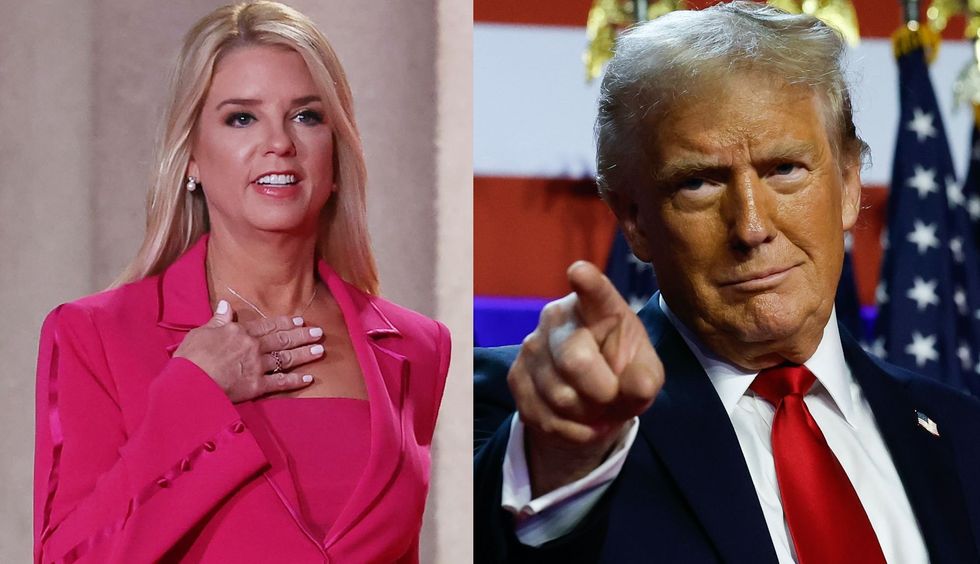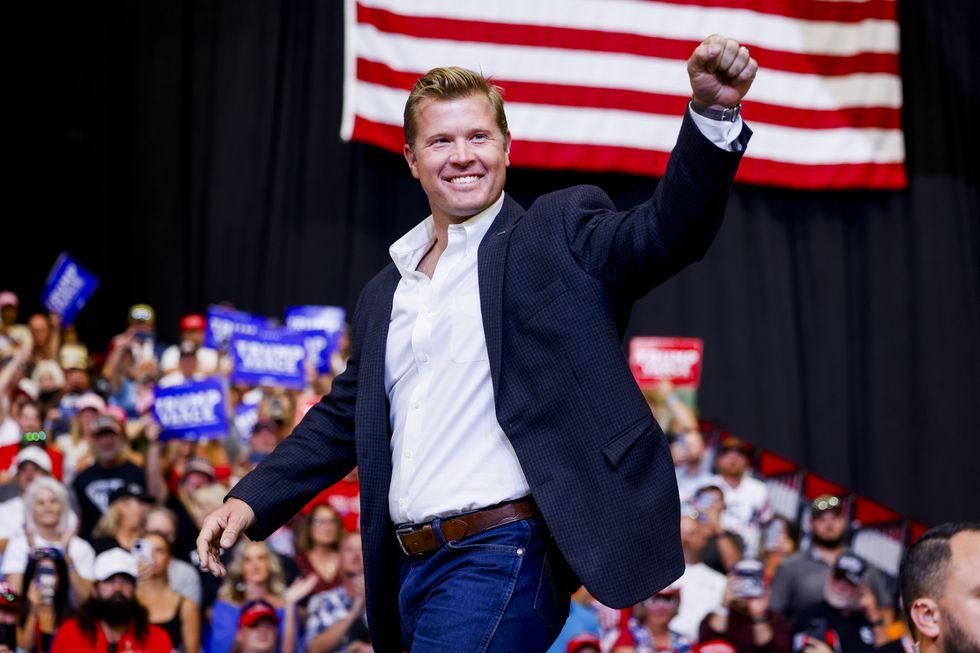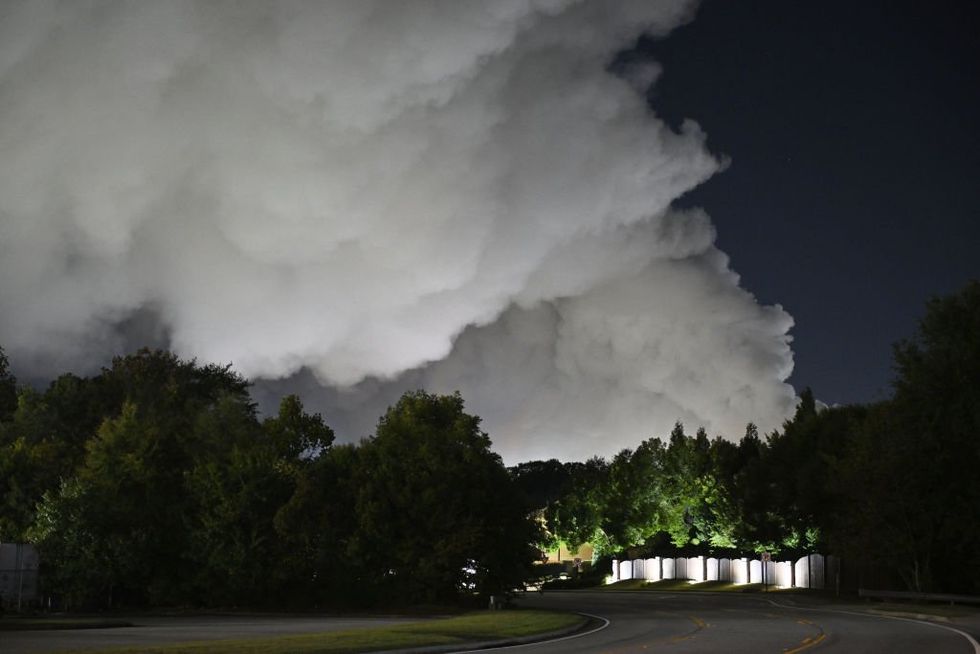Biden’s foreign policy record being changed to promote Harris
During his tenure 'Russia, China, Iran, and North Korea grew closer' without opposition in the axis of autocracy



The great James Burnham in The Machiavellians distinguished between the “formal” and “real” meaning of political rhetoric. The formal meaning of such rhetoric, Burnham wrote, helps to disguise the real meaning. The American foreign policy establishment has begun to spin the foreign policy legacy of President Joe Biden. Writing in Foreign Affairs, Jessica Matthews, Distinguished Fellow and former president of the Carnegie Endowment for International Peace, claims that although “it is too soon to judge the historical significance of Joe Biden’s one-term presidency, it is clear that the past four years have witnessed remarkable achievements in foreign policy.” But this narrative is not just about Biden’s supposed foreign policy legacy. It is also an effort to boost the foreign policy credentials of Vice President Kamala Harris.
According to Matthews, Biden shifted U.S. foreign policy “from an unhealthy reliance on military intervention to the active pursuit of diplomacy backed by strength,” strengthened our alliances, deepened our presence in Asia, promoted multilateralism, and ended the war in Afghanistan. “Biden,” she writes, “has made profound changes in foreign policy–not to accommodate American decline but to reflect the country’s inherent strength.”
Matthews credits Biden with “boldness” in withdrawing from Afghanistan–others would describe it as amateurish and humiliating. She claims that Biden’s response to Russia’s invasion of Ukraine “has been both skillful and innovative” and “masterful,” forgetting perhaps that he was the president that failed to deter that invasion. Biden’s “strength” that supposedly backed his diplomacy consisted of diminished relative naval power, a military leadership that prioritizes diversity, equity, and inclusion and efforts to combat climate change, an emboldened Iran in the Middle East, and an even more aggressive China in the western Pacific. It was during Biden’s presidency that Russia, China, Iran, and North Korea grew closer–his administration did nothing to attempt to widen potential cleavages among the so-called “axis of autocracy.”
What Matthews tries to obfuscate is that under Biden, the Taliban returned to power in Afghanistan, Iran-backed Hamas invaded Israel, Russia invaded Ukraine, and China became more aggressive in the western Pacific, threatening both Taiwan and the Philippines. This is not a record of “remarkable achievement.” It almost makes Jimmy Carter look good by comparison.
In Ukraine, instead of using American “diplomacy backed by strength,” Biden has rejected any suggestions for a negotiated ceasefire in favor of support for a Ukrainian “victory.” This is the exact opposite of the kind of “realism” that Matthews claims to support. There is no end in sight to the Ukraine war, and the longer it lasts, the greater the chances of escalation to a wider European, or even global, war.
Matthews is closer to the mark when she characterizes the Biden Middle East policy as a “mix of inattention and wishful thinking,” and that is being generous. Matthews writes that Biden should have been willing to use our leverage to “compel Israel” to wage war the way we–separated from our enemies by oceans–think they–surrounded by enemies–should wage it.
Matthews also criticizes Biden for his Taiwan policy, even though she mysteriously credits him for implementing the “pivot to Asia.” She worries that Biden’s policy has strayed from her preferred policy of “strategic ambiguity.” Matthews apparently still believes that the failed dual policy of engagement/competition can still work with China. Her criticism of Biden here is off the mark. Biden has mostly moved away from the more confrontational policy pursued by the Trump administration during its last two years. The fact that Matthews thinks Biden has been too tough on China with respect to Taiwan reveals more about her worldview than Biden’s. Overall, she writes, “relations with China are steadier than those he inherited.”
Biden gets poor marks for his failure to “advance nuclear arms control and nonproliferation.” Matthews criticizes Biden for providing weapons grade fuel to our ally Australia for its submarines. Meanwhile, China has engaged in what some strategists call a nuclear “strategic break out,” which will result in China’s ability to deploy more than 1,000 nuclear warheads by 2030, and 1,500 such warheads by 2035. And Iran is well on its way to obtaining (if it already hasn’t) nuclear weapons.
But in the end, it is the “remarkable achievements” of the Biden administration that Matthews touts because the real purpose of the article is not to praise Biden’s foreign policy legacy as much as it is to persuade voters to choose a candidate this fall who will “share [Biden’s] worldview.” The choice, she concludes, is between an unmentioned Kamala Harris, who presumably shares Biden’s worldview, and Donald Trump, who will return to a foreign policy of “populism, go-it-alone nationalism, or even isolationism.”
Back to Burnham: Matthews’ formal meaning of her article is to generally applaud the foreign policy record of President Joe Biden, but the real meaning is to persuade voters to vote for Kamala Harris over Donald Trump.
Francis P. Sempa is the author of “Geopolitics: From the Cold War to the 21st Century” and “America’s Global Role.” His work has appeared in Strategic Review, the Diplomat, Joint Force Quarterly, the Claremont Review of Books, the Asian Review of Books, the South China Morning Post, the National Interest, and other publications.
SUPPORT TRUTHFUL JOURNALISM. MAKE A DONATION TO THE NONPROFIT WND NEWS CENTER. THANK YOU!
Originally Published at Daily Wire, World Net Daily, or The Blaze
What's Your Reaction?
































































































